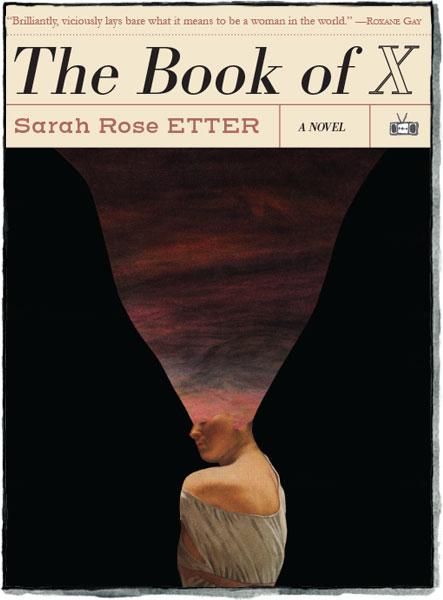
Go Forth is a series that offers a look at contemporary literature and publishing, started by Brandon Hobson and Nicolle Elizabeth in 2012.
I first read Sarah Rose Etter’s language-up fiction years ago in stories that cut straight to bone, included those collected in Tongue Party, a chapbook published by Caketrain. Since then I’ve been waiting for a full length work and The Book of X proves that the waiting was well worth it. We often talk about world-building in novels and Etter has done so brilliantly here and with distinction. It is a strange, uncanny world, that features the strange and broken body of a strange and broken young woman named Cassie, the narrator we simultaneously pull for, are fascinated by, and want to protect somehow. This is one of the most visceral books I’ve ever read and one that stays with you long after you’ve read the last page.
THE BELIEVER: How did The Book of X start? One opens it up and is immediately struck by the form, short fragmented pieces, interspersed with a collection of facts and visions. And of course, the narrative starts from the first sentence, full of information and history. So, how did it all come together? The story, the form, all of it.
SARAH ROSE ETTER: Putting this book together felt like stitching body parts together, weirdly. Initially, I had this narrative about a girl named Cassie who was born as a knot, but her life was so tragic that I was looking for ways to give her and the reader breathing room. One of the challenges of writing a dark book is there’s the chance you go so far that the reader can’t stomach it, then the narrative becomes alienating. I can think of a few books that have done that to me – been so massively intense that I could hardly stand to read them. I didn’t want this book to go that far.
The visions were pieced together throughout as a system of escape for Cassie that eventually turns on her. She starts out imagining a world that is better than the one she is in—but as she grows up and gets a job, it becomes clear her station in life is not going to change. That’s when the visions she has stop being an escape and start to really exacerbate her mental state, eventually turning on her.
I’m glad you brought up the facts. They play a crucial part in creating breathing room for the reader. I’m a nerd at my core, always watching Planet Earth or documentaries, and being struck by the poetry...
You have reached your article limit
Sign up for a digital subscription and continue reading all new issues, plus our entire archives, for just $1.50/month.
Already a subscriber? Sign in




